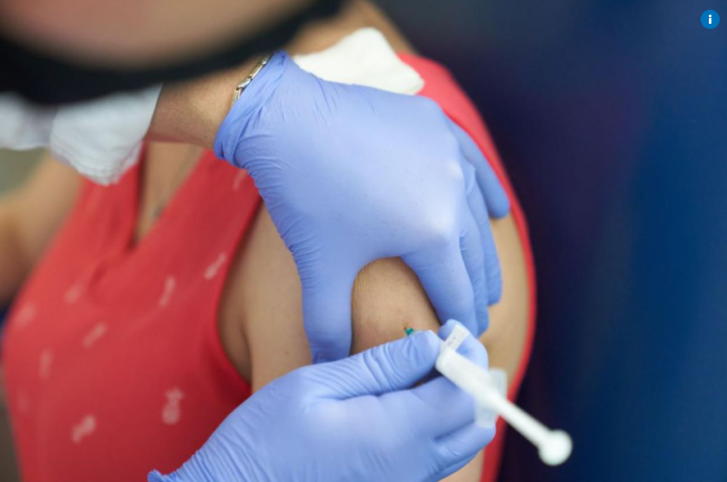When Nicolas Lacasse sat down for an injection as part of the first large-scale trial of a Canadian-made COVID-19 vaccine, he wasn’t told if he was getting the real thing or a placebo — he still doesn’t know.
What he knows for sure is that he has not yet received a COVID-19 vaccine authorized by Health Canada, and he won’t anytime soon if he wants to remain in a trial that could help add another life-saving vaccine to Canada’s arsenal of COVID-19-fighting tools.
Now, with an Ontario vaccine certificate looming, he worries he’ll be penalized for his choice.

Lacasse is helping test the vaccine candidate made by Medicago, a pharmaceutical company based in Quebec City. It’s the Canadian-made vaccine closest to a regulatory green light in this country, and the only homegrown dose that has been prepurchased by the federal government.
The Burlington man signed up because he wanted to do his part to speed the creation of the vaccine, but now he’s left wondering if he’ll be barred from restaurants and other indoor public places after Ontario’s new vaccine certificate comes into effect after Sept 22.
“I believe we’re doing something good by participating in the trial,” Lacasse said of the roughly 700 trial participants in Ontario. The trial currently has 30,000 volunteers around the world.
“To be penalized for it is heartbreaking.”
Medicago started the final stage of testing, known as phase three testing, of its plant-based vaccine candidate in March 2021.
Phase two trials showed promise. The company reported in May that two doses of its plant-based viruslike particle vaccine generated 10 times the level of antibodies in healthy adults and seniors than are seen in patients who have recovered from COVID-19.
But it’s the results of this final stage of testing that will be used by experts at Health Canada to determine whether or not to authorize the shot for use across the country.
Lacasse said it was hope in science that drove him to participate in the trial. As a person who works from home and lives far away from his aging parents, he thought his risk equation was right for participation.
“It is really not a decision I took lightly but I believe the more tools that exist the better off we will be,” Lacasse said. “What helped me when the needle was getting inserted was thinking: maybe this is the one.”
By “the one,” he said, he meant one more tool that would be very effective at fighting COVID-19, and help get Canada to herd immunity more quickly.
For its trial to proceed properly, Medicago is using a “double blind” experiment, meaning some participants are given the Medicago vaccine candidate, while others are given a placebo.
Neither people administering the vaccine nor those receiving it know whether they got the placebo or the real thing, and they won’t until researchers have a chance to compare the rates of COVID-19 in both groups.
Only participants leaving the trial can find out which dose they’ve received.
That’s Lacasse’s main concern right now — that other Medicago trial participants will leave the trial in order to receive an already-approved vaccine, slowing down the experiment.
It’s a concern echoed by Medicago. In a statement emailed to the Star, a company spokesperson said they were “very concerned” about the possibility of Ontario participants being denied vaccine certificates, and leaving the trial because of it.
“We urgently need the Government of Ontario to follow the example of Quebec and provide vaccine passports to clinical trial participants in order to prevent them from leaving the study,” the statement, provided by Tanvir Janmohamed, said.
“Clinical trial participants are essential to advancing vaccine technology in Canada, and should not be penalized for their choice to contribute to science for the benefit of society.”
Ontario’s Ministry of Health said in a statement that it’s not involved in the Medicago trial process, and did not list trial participation as one of the exemptions for its vaccine certificate program.
“The only exemptions permitted to enter the higher-risk settings identified as part of Ontario’s proof of immunization requirement starting Sept. 22 are those with medical exemptions and individuals under 12 years old who are not yet eligible to receive the vaccine,” the ministry wrote in an emailed statement.
In Quebec, trial participants raised similar concerns following the announcement of that province’s vaccine certificate program, which began Wednesday. The province subsequently decided to grant trial participants a vaccine certificate so that they would not be penalized for participating in the trial.
Article From: The Star
Author: Alex McKeen

